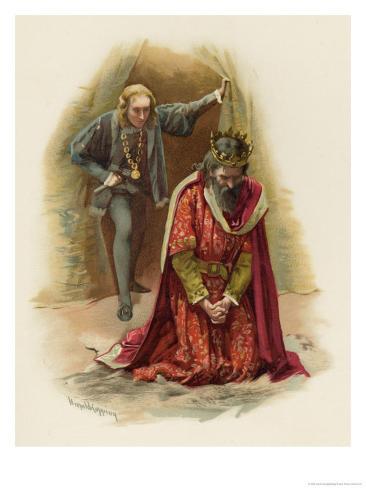Throughout King Lear, we see a King undergo a deconstruction and degradation of himself. Initially owning a title, palace, family, and overall status, the man is stripped of all his possessions down to the very clothes on his back. This return back to his natural form is seen as a downfall, yet Shakespeare emphasizes the power of such a reducec state when Lear speaks to Gloucester : “No eyes in your head, nor no money in your purse? Your eyes are in a heavy case, your purse in a light; yet you see how this world goes” (4.6.148-50). Lear is commenting on Gloucester’s unforeseen (no pun intended) disfiguration but he’s also self-reflecting.
No physical harm has come to Lear as of yet, only the self-inflicted madness he experiences. However, he does go through a reverse evolution of sorts and becomes one with the natural world. Fighting off tempests and harsh forces of nature, the man survives and comes out psychologically more intact than when he came in. Some would disagree with me on that part but what I mean by more intact is that he experiences clarity of mind, even if for an instance. Only after he had reduced himself to a piece of nature did his vision improve.
It says a lot on the destructive power of man– or woman in this case– that the dangerous natural world couldn’t succeed in destroying Lear – but they could. Cordelia compares Lear to the sea: “As mad as the vex’d sea; singing aloud; / Crown’d with rank femiter and furrow-weeds” (4.4.2-3). The sea is one of the most destructive forces in the world, with its vast depths and murderous temper tantrums. This synonymous reference could just be Cordelia’s way of explaining Lear’s fluctuating madness, with waves of tyrant tides. However, I do believe that this is also a physical comparison to a natural element that Lear has embodied and survived. He has outlived the tempestuous currents that could drag a man to the depths, and come to the surface where he could see the outline of his way home to shore. But that land is never reached and it is not because of natural occurrences but rather man-made destruction.
This death by man notion is seen as stronger than nature. That nature, despite its unstable dangerous surroundings, is safer and contains clarity of mind more than any man-made “harbor.”
